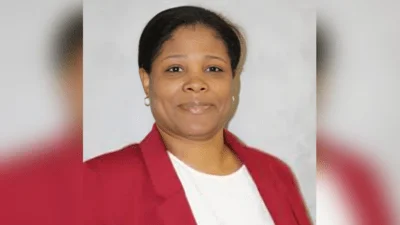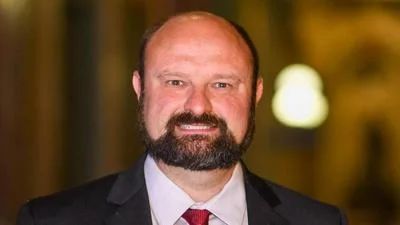City of Troy Public Works Committee met Dec. 13.
Here are the minutes provided by the committee:
MEMBERS PRESENT: Dan Dawson (Chair), Troy Turner (Vice Chair), Tim Flint, Debbie Knoll (Substitute for Nathan Henderson).
ABSENT: Nathan Henderson.
OTHERS PRESENT: Alderman Elizabeth Hellrung, Mayor David Nonn, City Administrator Jay Keeven, Public Works Director Rob Hancock, City Engineer Tom Cissell, Deputy Clerk Andrea Lambert.
Chairman Dawson called the meeting to order at 6:01pm. Alderman Debbie Knoll stood in for Alderman Henderson who was unable to attend.
The minutes of the November 9, 2021 Public Works meeting were presented for approval. Moved by Dawson to approve as presented. Second by Flint. Alderman Turner Abstained from the Voice Vote. Minutes were approved.
Wastewater Treatment Plant Discussion
Public Works Director Rob Hancock referred to representatives from American Water, Joe Ahlvin and Jeff King. The committee discussed potential factors for a possible change of management over the city’s sewer collection system. American Water’s concerns are needed infrastructure improvements and gradual and consistent price increases (regulated by the ICC) to meet those needs. Customers share combined repair/construction costs across communities. They plan to offer employment to current staff in that department. They would bill residents for collection and treatment separately from the water bill sent by the city. They would share the city’s current priority of downtown development and help us meet grant deadlines when needed. The company prefers automated payments but would temporarily allow ‘in-person’ payments.
Repairs are initiated by a call to the company followed by an investigation of the problem. From there, American Water would do the repair would typically be done by a contractor if it did not fall within private property lines. If the issue was their responsibility, they would employ a service such as serve pro to remedy a problem. Emergency repairs would be done right away, whereas capital projects could be delayed. Every 5 years there would be an opportunity to buy the system back from them, based on value.
Discussion of Water Meter Replacement & Lowest Bidders’ Presentation
The Meter Group / Zinner spoke to the committee about their ultrasonic meters with no moving parts. This company has installed 20,000 water meters in 14 municipalities this year. The team introduced their ‘mesh’ system in contrast to traditional tower systems. Each meter is fully submergible and equipped with a radio device in the pit along with a battery. Meters communicate with others nearby allowing lower strength frequencies to communicate in several directions if/when needed. If there should be an issue, the unit would reroute itself to communicate within the network. There would be repeaters installed every 3-5 miles to communicate with the collector. The measuring tube is bronze (not plastic). Batteries have a 10 year + 10 year proration and the meter has a 15 year full replacement warranty and can be consigned meaning the meter is out of operation only for the time it takes to change the battery. The self-programming meters can be installed by following prompts. They offer 3-4 days of training for operators. And on site help with billing over 4 months. With the ½ second sampling rate, this system automatically flags suspicious or activity. This company could retrofit their radio system to the 1500 ultrasonic meters that Troy has already installed. Data is encrypted and hosted on the web. They offered to do a pilot program for 90-120 days. If RFP phases 2 & 3 are combined, there would be a discount. [AMI meters are full auto read meters – full auto read – and can detect tampering or low flows. AMR meters are auto read meters, but the city would require staff to drive by to read them.]
Core & Main distribute Sensus meters, (our current meters). Their representatives explained their water metering system and addressed the committee’s questions. AMI systems offer 24 hourly meter readings per day. There is an on-demand reading option. Meters transmit to one collection device/tower (98.5% of our services are covered by the main tower). Additional things may have to be done to make the remainder of meters read. That info member travels to the bay station, and an internet connection is used to send data to the collection centers. Then they manage data and provide analytics. They offer a customer portal if desired (not included in previous quote). They have their own 2 watt primary license frequency protected by the FCC. Minimal infrastructure, interference, and idle noise (baby monitors, garage door openers, and wireless internet signal) should not be a concern.
Their Iperl plastic meters contain pressure and temperature sensors and avoid corrosion. They offer a full replacement warranty for the first 15 years. The next 5 years would be prorated. The meter is designed to be replaced at 20 years. There are no up/down stream requirements with their models. Reverse flows and leaks can be detected early. Back flow devices would still be needed. Lithium ion batteries are required.
Another option: the Ally model, can be turned off/on/flow reduced from the office when needed. It is more expensive than the Iperl, but could be utilized in areas of greater need. (Price previously supplied was for all Iperl meters.) Troy would have the ability to use hand held readers if needed (in the case of a natural disaster). Installation is an easy click set.
Highway Authority Agreement
Public Works Director Rob Hancock explained that 904 Edwardsville Road (site of future dispensary) is located on a LUST (Leaking Underground Storage Tank) site, previously a truck stop. The tanks were removed in the 1990’s. Over the years there has been remediation through multiple corrective action plans by the EPA, property owners, and Midwest Petroleum (the spiller). At some point, EPA issues a ‘No Further Remediation’ on the property. Sometimes it takes an ordinance to get that. We need a groundwater protection ordinance on 904 Edwardsville Road stating that no one can drill a well for potable use. The purpose is to protect the public because, though remediated, contaminants are still present. For public safety, wells may not be drilled on the property nor surrounding properties. All the affected properties are listed in the proposed ordinance and map. This ordinance is to satisfy the EPA. The potential buyers of 904 Edwardsville Road have had the property sampled again. They used an EPA model ordinance template and produced paperwork.
Troy also needs a Highway Authority Agreement between the city and the owner for the right of way in front of this property. Because the Right of Way is contaminated, the City (or anyone else) will not be allowed to drill a well there and will limit excavation. The city will notify anyone excavating in that area of this Highway Authority Agreement. IDOT has had an agreement on this site since 1999. Troy needs to approve a groundwater ordinance and highway authority agreement. Because we have not done this, the IEPA never issued a ‘NFR’. The city has water and sewer mains in that area and foresees eventual repairs needed there. These item need to be executed to protect the health and safety of the public and to satisfy the EPA.
In an effort to recoup our loss from disposing of contaminated soil, language has been included in the proposed agreement. The limit is capped at $10,000 because that is the deductible for a LUST claim for corrective action. If it exceeds $10,000, the LUST program (operated by the EPA), pays the difference. We are waiting to get a response on the HAA from the potential buyers of the property.
Motion to adjourn.
Motion: Knoll
Second: Flint
Motion approved by unanimous voice vote. The meeting adjourned at 9:06 pm.
http://www.troyil.us/AgendaCenter/ViewFile/Minutes/_12132021-500






 Alerts Sign-up
Alerts Sign-up